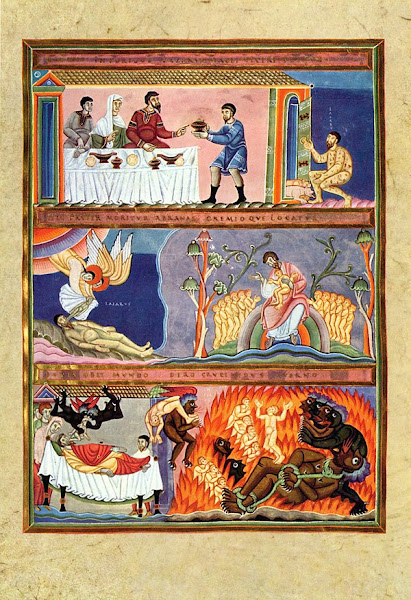If the Ghost was like the Rich Man, who was his Lazarus? (Part 2)

It is easy to be confused when the ghost in Shakespeare's Hamlet says that the poison his brother Claudius poured in his ear made King Hamlet's skin all "lazar-like." There are many possible sources of confusion: LAZAR-LIKE? LAZAR-HOUSE? LEPROSY? - First, many modern readers and potential audience members of the play don't know what leprosy is, or that a "lazar-house" was a hospital for lepers. This was common knowledge in Shakespeare's time, but is much less familiar to modern readers and playgoers. SORRY TO DISAPPOINT SCHOLARS OF EARLY MODERN SCIENCE We might imagine at this point that there may be a scientist or botanist who is also a Shakespeare fan, and who wonders if there may have been some poison known in Shakespeare's time that had the ability to curdle the blood and change the victim's skin so quickly to be entirely covered in crust. I hate to disappoint those scientists whose inclination might be to start at the literal





